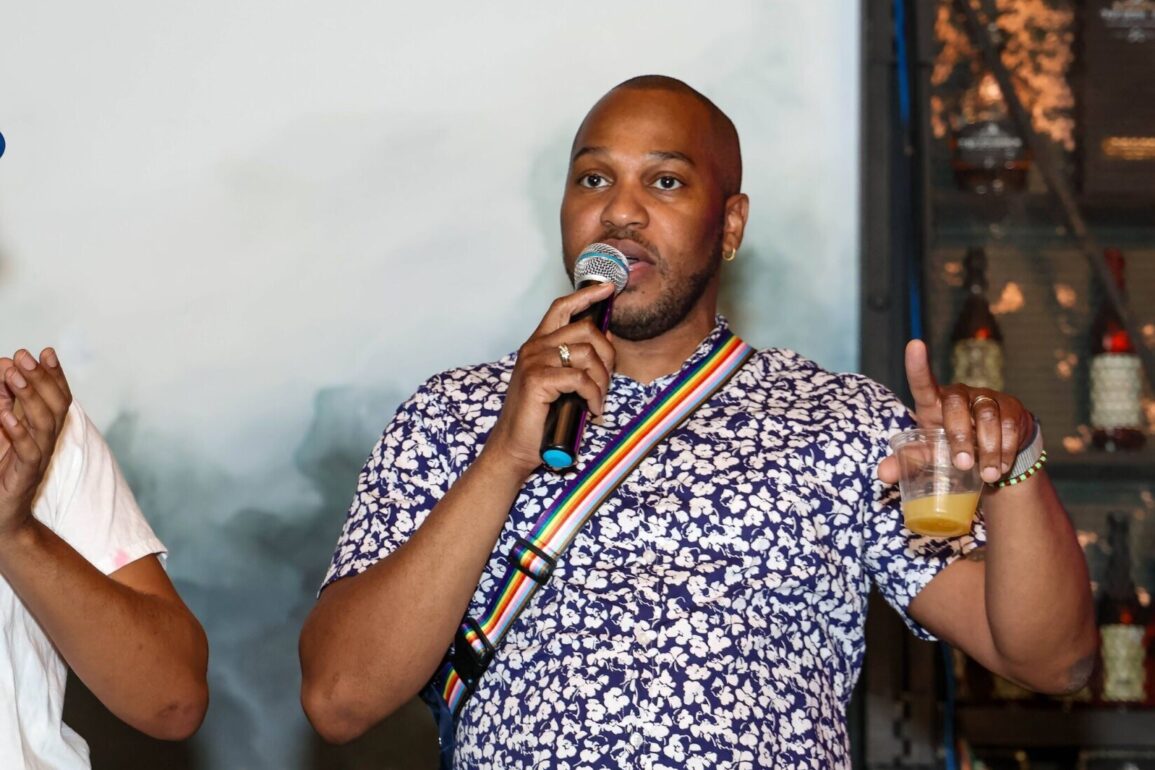Every week, WTOP is celebrating a Pride Hero who has made a difference in the LGBTQ+ community in the D.C. area as part of our Pride Month coverage. Check back all throughout June as we share these stories on air and online.
Celebrating local Pride Heroes: Kenya Hutton
While administering HIV tests in New York City, Kenya Hutton heard a loud boom as flying objects thumped against the side of his van. He stopped the test and peeked out a window.
“The neighbors didn’t want us out there because they thought we were having people hanging out in front of the building,” said Hutton, 46, a D.C.-based social advocate. “So they started throwing fruits at us.”
That was more than 20 years ago. But it taught Hutton a lesson about his line of work that he won’t soon forget — flexibility.
“I still have to do the work. I still want to do the work,” Hutton told WTOP. “Let’s just not do it in this block. Let’s move up a block.”
Hutton began his career in HIV prevention and treatment before expanding into broader social advocacy.
He’s currently a deputy director with the Center for Black Equity. Come August, however, his new title will be president and CEO when he takes over for Earl Fowlkes, who founded the organization in 1999.
The center’s members comprise organizations that support LGBTQ wellness, including those that host Black Pride celebrations. It has 50 members in the U.S. and around the world.
As part of his position, Hutton leads the charge in training leaders about raising money and creating safe spaces.
“Kenya takes a mother’s wing and basically mentors them, and help walk them through the process of engaging their community, which is easier in places like D.C., but it’s difficult (in) places like Selma, Alabama,” Fowlkes said.
His work oftentimes involves health equity, including helping Black and Latino LGBTQ community members get access to necessary care. But he’s also involved in advocating for social equity and financial equity.
“I come out and advocate for change … so that we all can enjoy what we all deserve as human beings,” Hutton said.
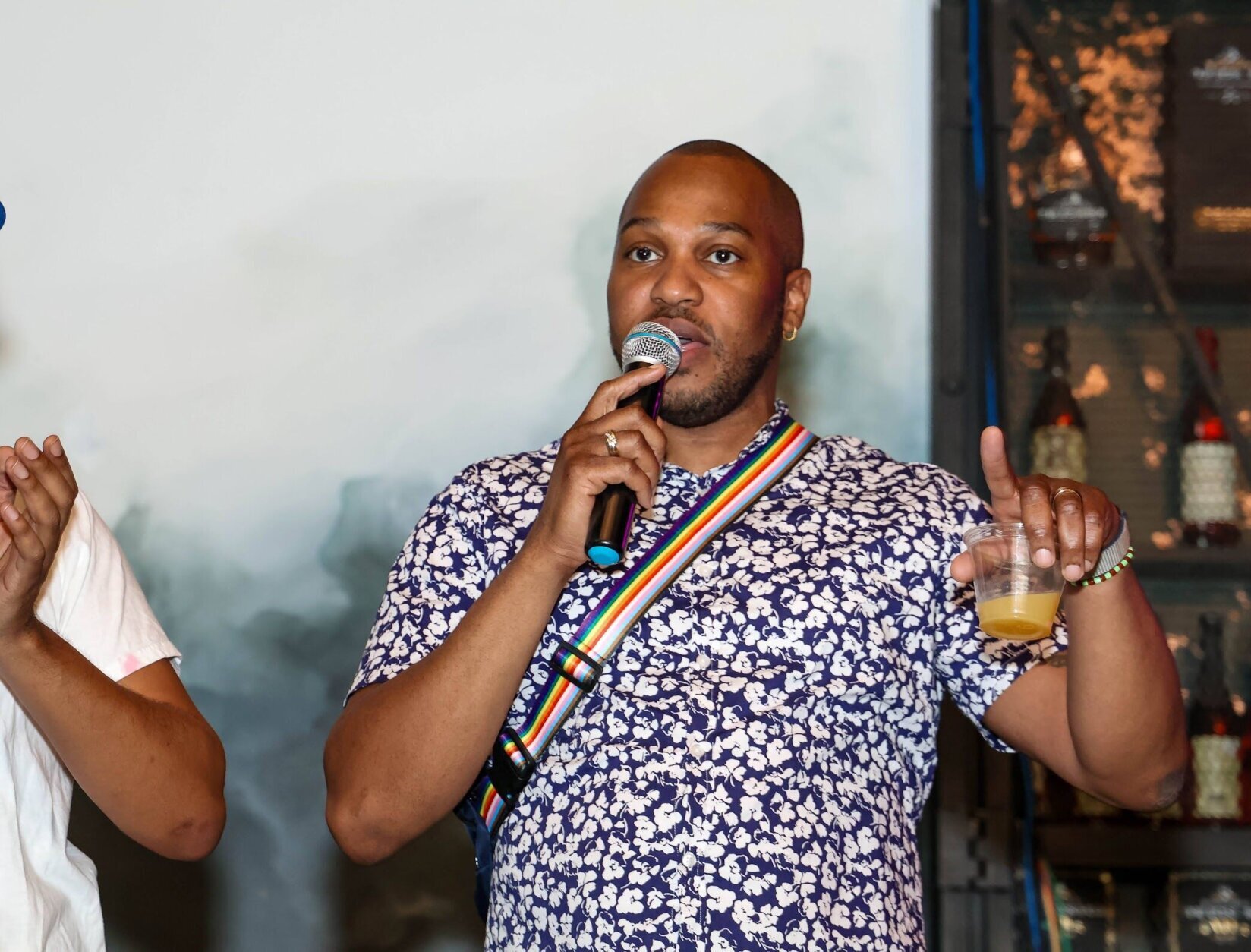
(Courtesy Kenya Hutton)
Courtesy Kenya Hutton
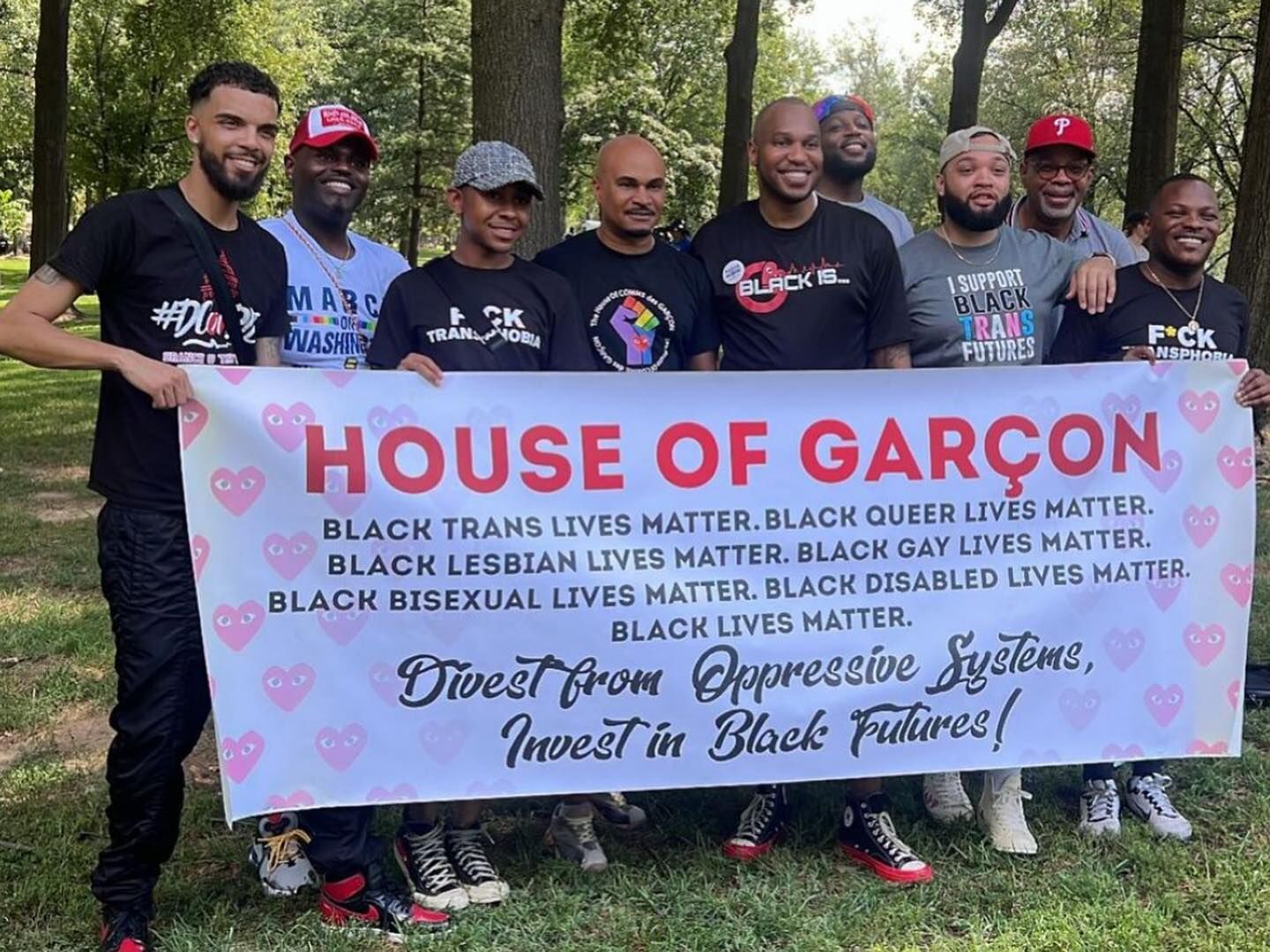
(Courtesy Kenya Hutton)
Courtesy Kenya Hutton
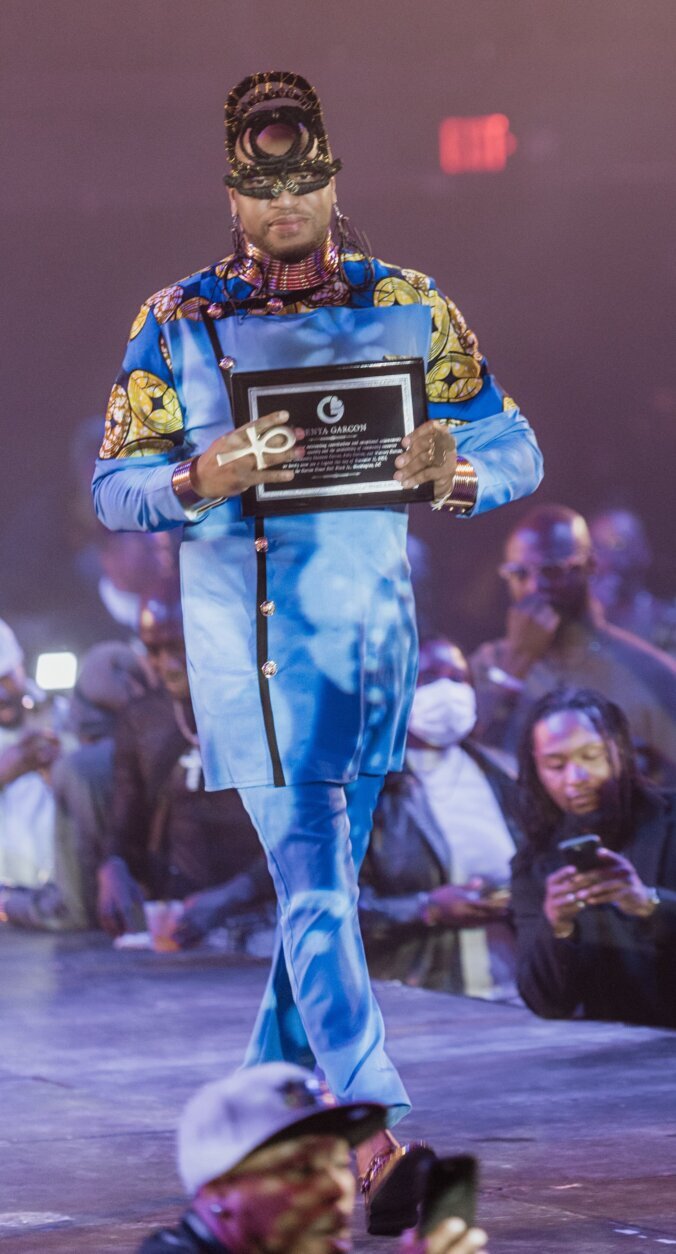
(Courtesy Kenya Hutton)
Courtesy Kenya Hutton
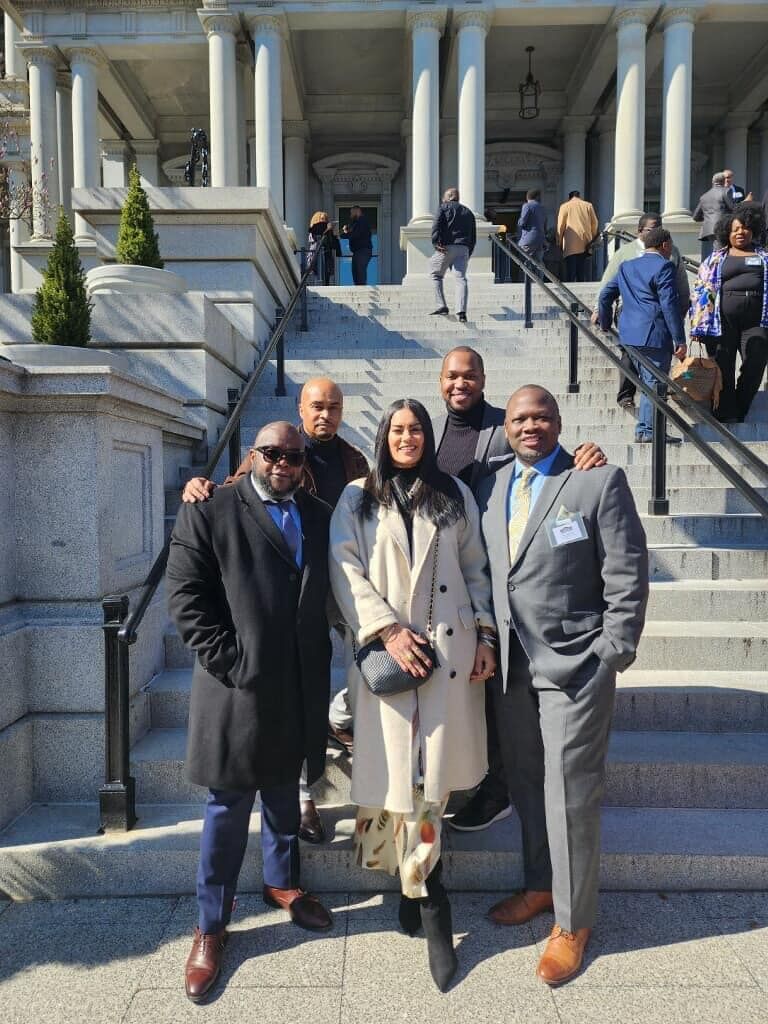
(Courtesy Kenya Hutton)
Courtesy Kenya Hutton
‘No one talked about it’: Breaking into advocacy
Hutton grew up in what he described as a rough neighborhood in Brooklyn, New York, in the ’80s and ’90s. As a young adult, he said he started noticing people passing away.
“One person in particular I remember seeing at a nightclub called the Octagon on Friday dancing, having a great time,” he said. “Then a week or so later, there was a ball … and they ended up having a moment of silence.”
At the time, he didn’t know what was happening.
“No one talked about it back then, but it just didn’t feel right,” Hutton said. “I had a friend that passed away.”
That came as a gut punch, and it motivated him to get involved, he said. He started working for the Gay Men’s Health Crisis in New York City.
Hutton then moved in with a friend in D.C. with the hope of expanding his work. He took the train with nothing but a suitcase and a trash bag stuffed with his belongings.
He’s spent the past two decades working in D.C. He got involved with the Center for Black Equity 13 years ago as a volunteer, while working a full-time job.
‘It gives them hope’: Supporting Pride events nationwide
The Center for Black Equity helps put on D.C. Black Pride, which has served as a model for similar movements nationwide for more than three decades, according to the event’s website.
Fowlkes said that Hutton’s contributions to Black Pride events have made a difference in the D.C. area and beyond.
“They’re in a safe space and they can be who they are,” Fowlkes said of Black Pride attendees. “That gives them energy. It gives them hope, it gives them strength, it gives them a reason to go back home and trot through another year perhaps.”
Through a virtual program, Hutton connected 20 Pride organizations with the support needed to put on HIV testing events in 2022. More than 700 people were tested at those Pride celebrations.
“One of the things that we do is really try to encourage Pride leaders to understand that your event is more than just a Pride. If you are mobilized, you’re a community leader, you really can get things done in the community that a lot of individuals cannot,” Hutton said.
For the past two years at D.C. Black Pride, he’s facilitated a health and wellness pavilion with free services that take up an entire floor of the Westin Washington Hotel. Visitors could get tested for COVID-19, MPOX, the flu and STIs, among other diseases. They had medications that can prevent infections on hand, such as PREP and Doxy-PEP. The clinic also offered blood pressure and glucose checks.
In exchange for getting health services, participants were entered into a raffle to win concert tickets to see superstar rapper Megan Thee Stallion.
The idea has caught on at other Pride events, Hutton said.
“That’s something I’m very proud of,” Hutton said. “It really created (an) opportunity for individuals to come and get health care services that they probably aren’t able to, or are scared to get within their hometown.”
Part of his job at the membership-based organization has been teaching leaders about how to approach elected officials.
“Being here in D.C. … I know how to navigate the political space here, I know how to get access to certain spaces, to have these conversations. But for some of our members down in somewhere (like) Alabama or Memphis, it might look a little different.”
When possible, Hutton said he tries to bring the person to the elected official. That effort has materialized through programs, such as the LGBTQ Black Health Equity symposium. The inaugural event brought Black Pride leaders from around the U.S. to the White House last year.
Barriers to change don’t end with flying fruit
Funding his work is consistently a challenge, Hutton said.
“Depending on how Congress is and the Senate is and who’s in the White House can really impact the ability for you to do work,” Hutton said.
Community work can be strenuous. Hearing “no” is frequent. Hutton said late nights and early mornings are a staple.
Even with the drawbacks, Hutton encourages people who have a passion for service to get involved.
“If you have that flame in you that says ‘This needs to be done,’ do it,” Hutton said. “Because if you have that thought, there’s someone else out there that has that need.”
He promised those hoping to make an impact on the community that those efforts are validating when seeing the impact that service can have.
“It makes it all worthwhile,” Hutton said. “When you look back and the person says, ‘Kenny, you saved my life, you helped me do this, you helped me through this dark time.’”
Hutton credits his drive to get involved with service to getting out of his hometown in the ’90s.
“I knew that I deserved better,” Hutton said. “I knew this was not going to be how my story is going to be told, and I actively sought out change to do that — even when the resources weren’t there.”
Get breaking news and daily headlines delivered to your email inbox by signing up here.
© 2024 WTOP. All Rights Reserved. This website is not intended for users located within the European Economic Area.


